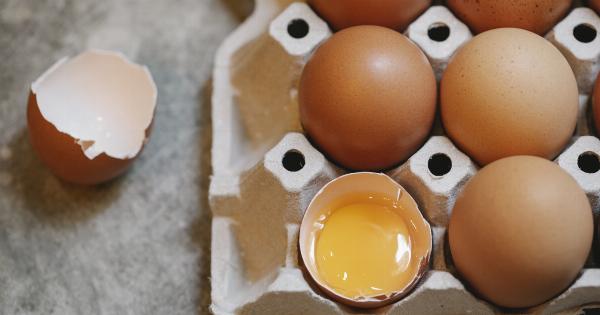Weight gain is a major health concern for many people today. The easy availability of high-calorie foods has contributed significantly to this problem.
The result is that people are searching for ways to consume fewer calories without sacrificing taste or nutrition. One of the ways to achieve this is by consuming foods that burn more calories than they add to the body. These foods can boost metabolism, aid digestion, and promote weight loss. Here are some of the 10 foods that burn more calories than they add:.
1. Broccoli
Broccoli is a cruciferous vegetable that is rich in fiber, vitamins, and minerals. It is also low in calories, which makes it an excellent food for those who are trying to lose weight. Broccoli is rich in calcium, which is essential for bone health.
It is also a good source of vitamin C, which is important for immune function. Additionally, the fiber in broccoli helps to promote satiety, which can help to reduce overall calorie intake.
2. Apples
Apples are a low-calorie, high-fiber fruit that are rich in antioxidants. They are also an excellent source of vitamin C. The high fiber content in apples helps to promote satiety, making it an ideal snack for those who are trying to lose weight.
Apples also have a low glycemic index, which means that they help to control blood sugar levels and reduce the risk of diabetes.
3. Blueberries
Blueberries are low in calories and high in antioxidants, which makes them an excellent food for those who are trying to lose weight. They are also an excellent source of vitamin C and potassium.
The anthocyanins in blueberries help to reduce inflammation and improve cognitive function. Additionally, the fiber in blueberries helps to promote satiety, which can help to reduce overall calorie intake.
4. Spinach
Spinach is a leafy green vegetable that is low in calories and high in nutrients. It is an excellent source of vitamin K, vitamin A, and folate. Spinach is also rich in antioxidants, which help to reduce inflammation and prevent chronic diseases.
Additionally, the fiber in spinach helps to promote satiety, which can help to reduce overall calorie intake.
5. Grapefruit
Grapefruit is a citrus fruit that is low in calories and high in nutrients. It is also an excellent source of vitamin C. Grapefruit is rich in antioxidants, which help to reduce inflammation and prevent chronic diseases.
Additionally, the fiber in grapefruit helps to promote satiety, which can help to reduce overall calorie intake. Studies have shown that consuming grapefruit before meals can also help to promote weight loss.
6. Celery
Celery is a low-calorie, high-fiber vegetable that is rich in vitamins and minerals. It is an excellent source of vitamin K, vitamin A, and potassium. Celery also has a high water content, which can help to promote hydration and aid digestion.
Additionally, the fiber in celery helps to promote satiety and reduce overall calorie intake.
7. Cauliflower
Cauliflower is a cruciferous vegetable that is low in calories and high in nutrients. It is an excellent source of vitamin C, vitamin K, and folate. Cauliflower is also high in antioxidants, which help to promote overall health.
Additionally, the fiber in cauliflower helps to promote satiety and reduce overall calorie intake.
8. Chili peppers
Chili peppers are a spicy vegetable that is low in calories and high in antioxidants. They are also an excellent source of vitamin C and potassium.
Chili peppers contain capsaicin, which is a compound that helps to boost metabolism and promote weight loss. Additionally, the fiber in chili peppers helps to promote satiety and reduce overall calorie intake.
9. Cabbage
Cabbage is a cruciferous vegetable that is low in calories and high in nutrients. It is an excellent source of vitamin C, vitamin K, and folate. Cabbage is also high in antioxidants, which help to promote overall health.
Additionally, the fiber in cabbage helps to promote satiety and reduce overall calorie intake.
10. Watermelon
Watermelon is a low-calorie, high-water content fruit that is rich in antioxidants. It is also an excellent source of vitamin C and potassium. The high water content in watermelon helps to promote hydration and aid digestion.
Additionally, the fiber in watermelon helps to promote satiety and reduce overall calorie intake.



























